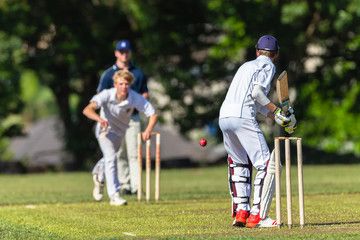Has the Alphabet Game of School Sport Gone into Reverse?

When inter-school sport began in the second half of the 19th century, each school had only one team. It was ‘The XV’ or ‘The XI’. Everyone else played internal games, between Houses or random fixtures such as North Side of Chapel v South and Light hair v Dark. With compulsory games every afternoon, it would have required some imagination to keep the contests fresh and meaningful.
Eventually, improvements in transport, ambition and attitudes to inclusivity led to an increase of school teams. One by one, there came to be a team in every year, until the explosion of the alphabet game in the last decades of the 20th century. Suddenly, it wasn’t enough to have one team, there had to be a team for everyone (whether they all wanted it or not), and an accepted hallmark of programme quality came to be the number of teams taking part in inter-school sport. Enormous credibility was attached to the biggest ‘block’ fixtures, usually between boys’ boarding schools, with 25 or more teams simultaneously in action. The alphabet became part of the scoreboard: having A-E teams in each year group was a badge of honour. They were the glory days of mass participation in team games.
The foundation was one of compulsory participation and limited alternatives to traditional sports. Both of these factors began eroding more or less simultaneously. The arms race of facility development enhanced indoor opportunities, at the same time that parent power and safety concerns made schools less comfortable to leverage pressure to play. The conscripts previously dragged onto the bus began to have a voice, and a right of refusal. Ironically, the oldest established school sports suffered most: Rugby from reduced appetite for risk, and Cricket and Rowing demanding too much time commitment in an examination term.
The contraction of the alphabet game began slowly. Initially schools made every effort to avoid the Friday call of shame to cancel a low ability match. Conscription refused to die quietly. But as cancellations gathered momentum, it became normal behaviour. Fixture cards came to qualify for the Pulitzer Prize for Outstanding Works of Fiction, as teams became less dependable. In schools where the culture was weak, the staff lost their appetite for the tiresome Friday task of begging pupils to get on the bus the following day. Short notice cancellations became an accepted norm.
Many schools have fewer teams in traditional games than they had five years ago. In some areas, and some sports, this decline has been spectacular. Where does it end?
School sport is at a stage of re-defining itself. It is a shifting landscape. The recognition that not everyone wants to play in games teams has been a reluctant conclusion, but rationalisation of fixture-making is now underway. Establishing the stable and sustainable future may still not be complete in every school, but many now have a better idea of the programme that will win sufficient support for pupils and parents.
Team games will have a place in UK schools in the foreseeable future. However, the number of teams will be reduced. It is unlikely however, that it will ever return to one team per school.